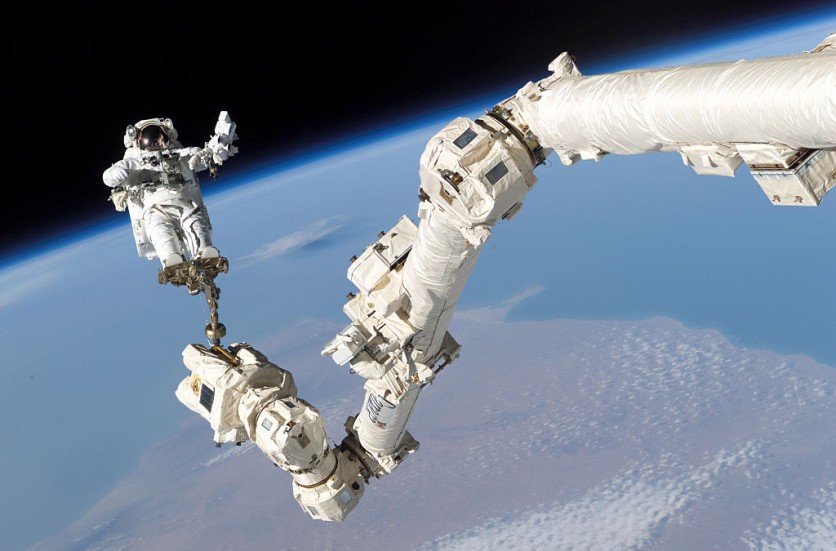The Canadarm2, a 17-meter-long Canadian-made robotic arm on the International Space Station (ISS), will be used to investigate a tethered Soyuz spacecraft, as first reported by CBC.
This was announced by Russia's state space enterprise on Sunday, Dec. 18, following the discovery of a leak immediately before a spacewalk last week.

Spacecraft Inspection
Roscosmos canceled Thursday's spacewalk because of damage to the Soyuz MS-22 capsule's exterior surface near the instrument assembly compartment. There was a loss of coolant, the warning stated.
According to a statement released by Roskosmos, cameras of the SSRMS and the Space Station Remote Manipulator System will be used to examine the Soyuz MS-22 spacecraft. "The results will be transmitted to Earth on Monday," it added.
The SSRMS, sometimes known more commonly as Canadarm2, is responsible for performing maintenance, moving supplies, and grappling incoming spacecraft.
As a result of the efforts of experts at the Mission Control Centre outside Moscow, the temperature inside the Soyuz MS-22 human spacecraft was brought down to within the required parameters, Roskosmos' statement said.
The launch of the Soyuz MS-23 from Baikonur in Kazakhstan is already ongoing, and according to Russia's space agency, the launch date may be moved forward if necessary.
Leakage Discovery
In light of the recent leak of coolant from a Russian space spacecraft docked to the ISS, which a micrometeorite may have caused, there has been a need for more investigation and analysis of the incident.
The Soyuz MS-22 spacecraft was supposed to launch at the appointed time, but NASA reported that ground technicians discovered major leaks two hours beforehand.
With the quantity of fluid and coolant gone, astronauts may be stuck for a while.
A video of the spacewalk showed a cascade of particles shooting out of the ship and into space. The crew of the ISS then reported a sensor reading from the Soyuz spacecraft, indicating a decrease in the pressure of the cooling system.
The astronauts on board the ISS are safe, but it is unclear whether their spaceship will be able to return them to Earth. In the spring of 2023, the astronauts are scheduled to return to Earth.
However, if a replacement craft is not deployed to the ISS soon, two astronauts may be stuck there until it arrives.
Possible Suspect
Astronauts and space specialists warn of unpredictable micrometeorite attacks in orbit. However, this is the first time astronauts have witnessed it damage the ISS's cooling system.
A micrometeorite is an orbital debris a little larger than a grain of sand. They may be the most common form of object in space, yet they are difficult to see.

![Apple Watch Series 10 [GPS 42mm]](https://d.techtimes.com/en/full/453899/apple-watch-series-10-gps-42mm.jpg?w=184&h=103&f=9fb3c2ea2db928c663d1d2eadbcb3e52)



